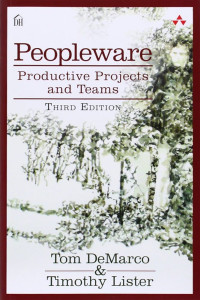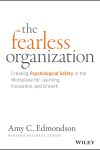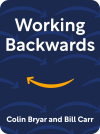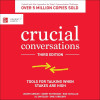Peopleware
Productive Projects and Teams
"Peopleware" challenges the conventional wisdom that software development productivity can be improved through technical solutions and process optimization. Instead, it argues that the major issues of software development are human, not technical, and that managers need to focus on creating environments where people can work effectively.
The book draws on the authors' extensive consulting experience and research, including their groundbreaking "Coding War Games" studies, to demonstrate how workplace environment, company culture, and management practices dramatically impact software development productivity and quality.
Unlike most software development books that focus on technical practices, Peopleware examines the human factors that make or break projects: workspace design, team formation, organizational culture, and management philosophy. It provides practical insights into why so many software projects fail and offers concrete solutions for building and maintaining productive teams.
By reading Peopleware, you will:
- Understand why conventional productivity improvement approaches often fail by focusing on technical solutions to human problems
- Learn how to create and maintain high-performing development teams by addressing crucial environmental and cultural factors
- Master the art of managing knowledge workers by recognizing and removing common productivity barriers
- Develop strategies for handling organizational change and maintaining team effectiveness in software projects
Related Books
- "The Mythical Man-Month" by Frederick P. Brooks Jr.: The seminal work on software project management that complements Peopleware's human-centric approach with insights about system development complexity.
- "Out of the Crisis" by W. Edwards Deming: Referenced in Peopleware regarding quality management and organizational transformation, providing deeper insights into systematic improvement.
- "Managing Transitions" by William Bridges: Expands on Peopleware's change management concepts, offering detailed frameworks for handling organizational transitions.
- "The Timeless Way of Building" by Christopher Alexander: Influences Peopleware's thinking about pattern languages and creating effective work environments.
- "Waltzing with Bears" by Tom DeMarco and Timothy Lister: A companion book focusing specifically on risk management in software projects.
People Trump Process
Your best process won’t save you if your people are burning out. Stop obsessing over methodologies and start investing in your team’s growth, environment, and wellbeing. The highest returns come from helping good people do good work.
The Quiet Revolution
A pin drop can cost you an hour of productivity. Knowledge workers need quiet, focused time to achieve flow state - and interruptions are killing your team’s effectiveness. One 5-minute interruption actually costs 20 minutes when you factor in recovery time.
Quality Is Non-Negotiable
You can’t push quality in later like a missing feature. Teams need the power to maintain their own quality standards - it’s not just about pride in work, it’s about sustainable productivity. Good people want to do good work; let them.
Time Isn’t Money - Focus Is
Working longer hours is like overdrawing your bank account - you’ll pay it back with interest. Instead of asking for overtime, create focused work time. One hour of focused work beats three hours of interrupted chaos.
Teams Are Gardens, Not Lego Sets
You can’t assemble a high-performing team like a piece of furniture. Great teams grow organically through shared challenges and trust. Plant the right seeds, provide the right environment, and be patient.
Culture Eats Strategy for Breakfast
The best-laid plans crumble against a toxic culture. Real change doesn’t come from grand pronouncements but from creating environments where people can do their best work. Leadership is a service, not a position.
Trust the People Doing the Work
Your developers aren’t interchangeable parts in a machine. They’re knowledge workers who need autonomy, purpose, and the space to apply their judgment. The best methodology is the one that amplifies their capabilities rather than trying to replace their thinking.
Q: Why do most productivity improvement programs fail?
A: They focus on technical solutions to human problems and often ignore the environmental and cultural factors that truly drive knowledge worker productivity.
Q: How does workspace design impact productivity?
A: Knowledge workers need quiet, interruption-free environments to achieve flow state. Open offices and frequent interruptions can reduce productivity by 40% or more.
Q: What’s wrong with using overtime to meet deadlines?
A: Sustained overtime leads to burnout, increased errors, and compensatory time off. It’s effective only for very short periods and actually reduces long-term productivity.
Q: How do you know if a team has “jelled”?
A: Jelled teams show signs like low turnover, strong identity, sense of eliteness, and ownership of goals beyond management directives.
- When transitioning from developer to team lead or manager: The book provides crucial insights about the human factors that technical leaders often overlook.
- During office space planning or team reorganization: Learn why common workplace designs fail knowledge workers and how to create environments that enhance productivity.
- When dealing with high turnover or team productivity issues: Understand the real causes of productivity problems and how to address them effectively.
- Before implementing major process changes: Gain insights into why methodology changes often fail and how to implement change successfully.

Your support helps me maintain and improve the book recommendations for everyone.







